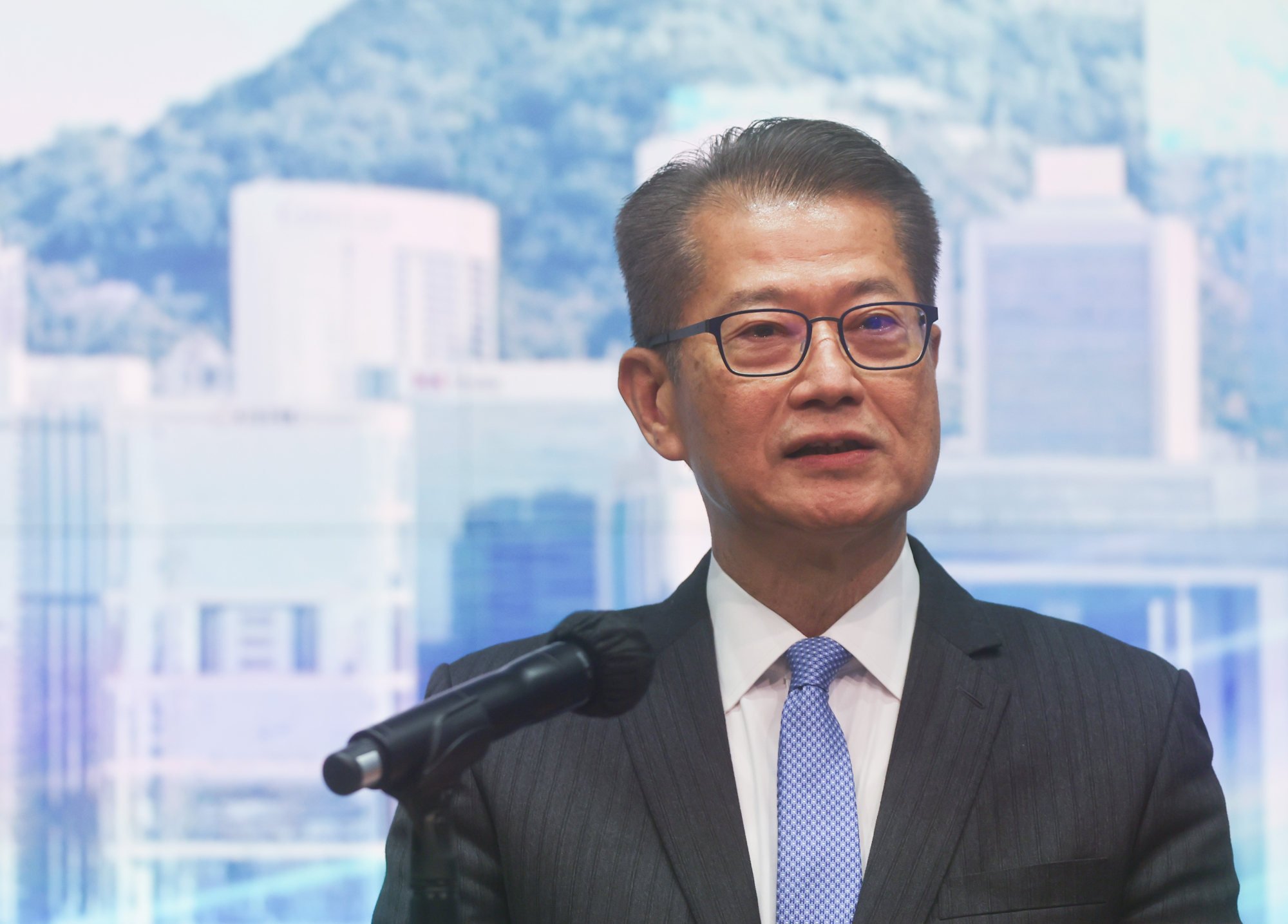
20 major companies to open or expand in Hong Kong this week, finance chief Paul Chan says
- Chan says firms, together with 30 companies that made similar moves last year, will invest more than HK$40 billion in the city and create 13,000 jobs
- ‘These key companies will help attract upstream, midstream and downstream companies … promoting the … entire innovation and technology ecosystem,’ he says
The group of about 50 companies will invest more than HK$40 billion (US$5.1 billion) in the city and create more than 13,000 jobs, mostly in scientific research and management positions.
“These key companies will help attract upstream, midstream and downstream companies in related sectors to cluster in Hong Kong, promoting the vibrant development of the entire innovation and technology ecosystem,” Chan said.

The news came as Chan promised Hong Kong would continue to develop as an international innovation and technology centre, on top of being a multinational supply chain management giant and trade finance hub.
“While traditional markets in Europe and the United States remain important for Hong Kong’s exports of goods, their share has significantly decreased,” he wrote.
Chan said the proportion of exports to the United States fell from 18.6 per cent of the total in 2003 to 6.5 per cent last year and exports to the European Union went down to 6.6 per cent from 10.5 per cent over the same period.
But exports to Asean countries over the time frame went up from 6.1 per cent to 7.9 per cent, which made the bloc Hong Kong’s second-largest export market after mainland China. The proportion of exports destined for the Middle East went up to 3.3 per cent.
Chan said geopolitical developments, global manufacturing adjustments, supply chain restructurings, and the emergence of nearby ports with excellent facilities had reshaped production and export patterns of businesses and affected Hong Kong’s export performance.
Hong Kong plans e-commerce festival ‘to boost city’s brands in mainland’
He explained that large manufacturers had adjusted their supply chains, but many medium-sized ones had yet to do so.
Chan added environmental, social and corporate governance, as well as high interest rates, had led to difficulties in trade finance, which had affected some businesses.
“Hong Kong has a solid foundation in trade and various related professional services, providing favourable conditions to capture the opportunities arising from these changes,” he said.
“The key lies in assisting companies in strengthening supply chain and value chain management, and creating higher value for their cross-border businesses through a focus on more efficient commercial and professional services.”
He said the city’s goal, laid out in February’s budget, was to establish itself as a one-stop shop able to offer services that included supply chain management, trade financing, consulting, talent development, and corporate training.
Chan added the city wanted to tap into the estimated 50,000-plus medium-sized manufacturers in the Greater Bay Area and the Yangtze River Delta, many of which would need to engage with overseas businesses as they expanded internationally.
Hong Kong finance chief says Beijing’s growth target ‘not easy, but achievable’
Chan said Hong Kong’s advanced financial infrastructure could provide companies with a variety of funding options and highlighted that more than 70 of the world’s top 100 banks had operations in the city.
“Mainland enterprises settling in Hong Kong will have access to more efficient and lower-cost trade financing services,” he added.
Chan said the city would launch the first phase of the mBridge this year, which will allow cross-border transactions using central bank digital currencies and boost payment speed as well as reduce costs.
The multi-central bank digital currency platform is a cross-border payment and foreign exchange transaction scheme being developed by the Hong Kong Monetary Authority in collaboration with the central banks of the mainland, Thailand and the United Arab Emirates.
Gary Ng Cheuk-yan, a senior economist at corporate and investment bank Natixis, agreed Hong Kong had to adapt to new demands because of a “global supply chain reshuffle”.
“The city will not only need to connect mainland and Hong Kong firms to new markets, but will also have to attract trade and capital flows that could have bypassed the city,” he said.
“The core advantages of Hong Kong remain in free capital flows and low taxes, meaning it is easy for firms to manage trade and investment here.”
But Ng added the city should be prepared for geopolitical problems and stiff competition from other jurisdictions such as Singapore, which held a natural advantage in the Asean bloc of countries as a fellow member.
“Hong Kong will have a role to play, but it will not be as easy as in the past,” he said.
